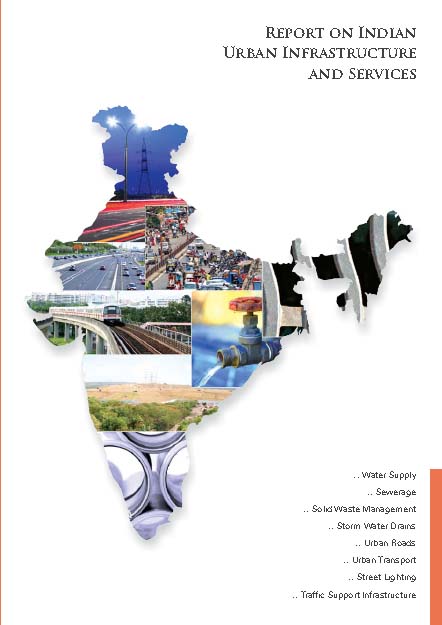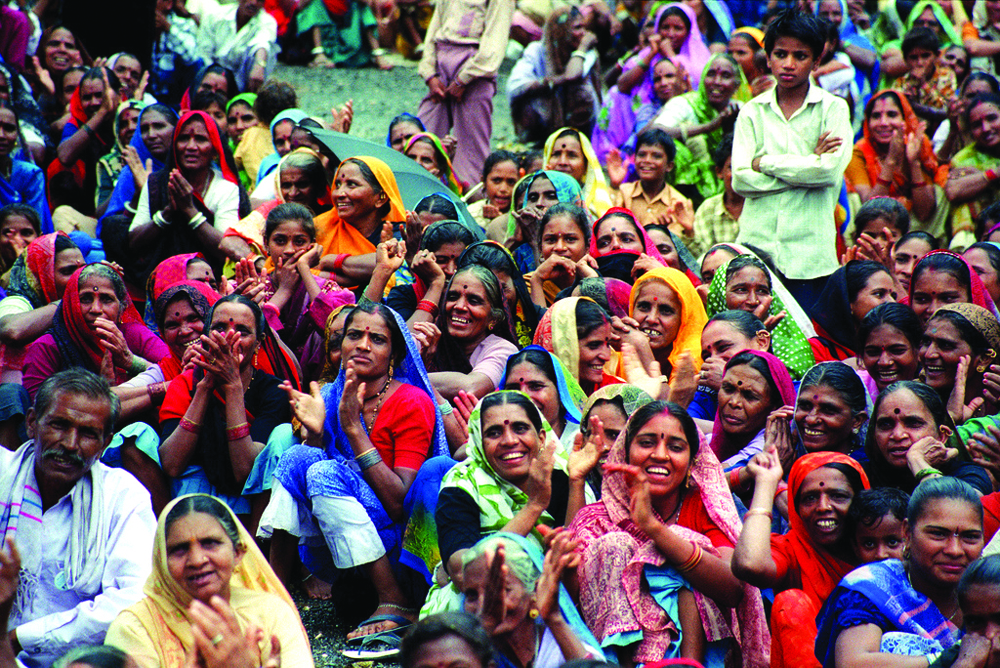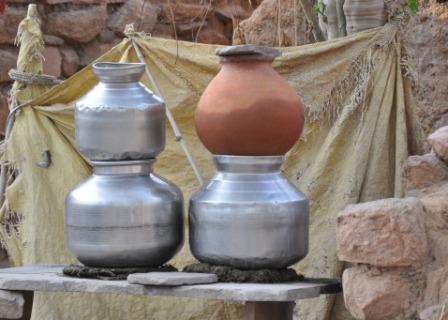Society, Culture, Religion and History
Farmers feel left out - Budget 2011-12 is more concerned about the consumer than the farmer - Down to Earth
Posted on 23 Mar, 2011 09:43 AMHarvest of Grief: A film by Rasil Basu and Ekatra Production that explores the severe agricultural crisis in Punjab
Posted on 22 Mar, 2011 02:48 PM
Narmada: Land at last - Video Volunteers
Posted on 22 Mar, 2011 11:55 AMArticle and Video Courtesy: Video Volunteers
Estimating the investment requirements for urban infrastructure services – Report of the High Powered Expert Committee (HPEC)
Posted on 22 Mar, 2011 09:13 AM This report on Indian urban infrastructure and services is an outcome of the High Powered Expert Committee (HPEC) chaired by Isher Judge Ahluwalia set up by the Ministry of Urban Development in May, 2008 for estimating the investment requirement for urban infrastructure services. It is an inevitable outcome of the faster rates of growth to which the economy has now transited. Indeed, urbanisation is itself a process that will support growth. The Committee has made recommendations on how to deal with these challenges of urbanisation.
This report on Indian urban infrastructure and services is an outcome of the High Powered Expert Committee (HPEC) chaired by Isher Judge Ahluwalia set up by the Ministry of Urban Development in May, 2008 for estimating the investment requirement for urban infrastructure services. It is an inevitable outcome of the faster rates of growth to which the economy has now transited. Indeed, urbanisation is itself a process that will support growth. The Committee has made recommendations on how to deal with these challenges of urbanisation.
The Committee has held several meetings with officials from the Government of India, state governments and local governments and also met with academicians and other stakeholders such as Asian Development Bank with interest and expertise in Indian urban issues.
The report argues that the challenge of managing urbanisation will have to be addressed through a combination of increased investment, strengthening the framework for governance and financing, and a comprehensive capacity building programme at all levels of government. The Committee has projected very large investment requirements for providing public services to specified norms and also supporting the growth process. The challenge of financing these investments is inextricably linked with the challenge of governing the cities and towns of India.
Geography workshops for students and parents – The Indian Institute of Geographical Studies (TIIGS), 9th – 24th April, 2011, Bangalore
Posted on 21 Mar, 2011 05:21 PMOrganizer: The Indian Institute of Geographical Studies (TIIGS)
Venue: GeoVidyaa Centre, Army Public School, Bangalore
Topics:
- Basics of latitude and longitude
Pest and disease management in organic, natural, sustainable agriculture - Presentations from the South Asia Conference on "Outstanding Organic Agriculture Techniques", Bangalore organised by OFAI (2009)
Posted on 20 Mar, 2011 06:17 PM This set of presentations from the conference on Outstanding Organic Agriculture Techniques held during September 2009 at Bangalore deals with pest and disease management practices in organic farming, which rely primarily on preventive and integrated methods.
This set of presentations from the conference on Outstanding Organic Agriculture Techniques held during September 2009 at Bangalore deals with pest and disease management practices in organic farming, which rely primarily on preventive and integrated methods.
Crop production and plan protection in organic farming
This paper by S R Sundararaman presents organic farming as the only recourse for farmers, to save both livelihood and the health of the soil. Organic farming methods enable farmers save money and turn their farmyard waste into value-added products for increasing crop production. Farmers will not have to be dependent on agri-business companies for seeds, fertilizers and pesticides. Our self-reliance is thus preserved. A large portion of our country's foreign exchange is used to pay for the import of petroleum products. By going organic we will also help our country save on valuable foreign exchange. Our land will keep giving us returns for extended periods of time unlike farming as per the green revolution, where the land stays productive for a short time and then becomes sterile.
The uppermost question in the minds of farmers who have recently converted to organic farming or who want to turn organic is how to ensure that crop production does not reduce and how to protect the plants from disease, without the chemical fertilizers and pesticides that their fields have grown used to. This paper provides the answers and it also seeks to reassure all farmers that there is no farm which cannot turn around and produce quality crops in sufficient quantity, using organic farming methods.
Preparedness for tsunami-like disasters - MoEF Press release
Posted on 18 Mar, 2011 01:07 PM
In the background of recent Tsunami tragedy that has struck Japan,concern has been raised in India on the safety of critical infrastructure projects located in the coastal areas, for instance, power plants, oil storage depots, refineries etc. More such projects are likely to come up in the coastal locations in the years to come.
Hazard Line Mapping
In this connection, it may be recalled that a very important component of the Rs.1200 crore project taken up by the MoEF for implementation involves identification, delineation and demarcation of the hazard line along the 5400 kms of the main coastline of India.







 Rural household saving water at home
Rural household saving water at home